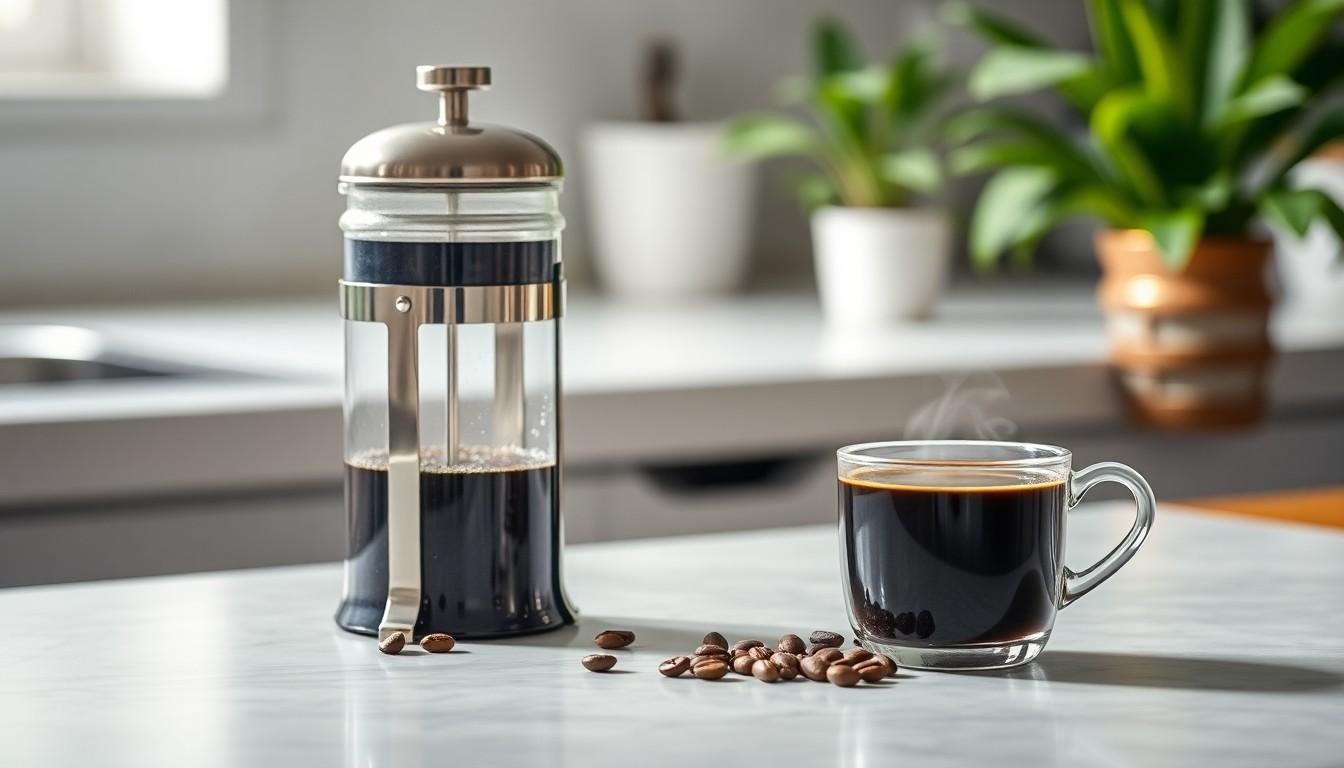
Emerging Approaches Redefining Craft-Focused Customer Experiences
Craft-focused small businesses have always relied on care, precision, and sourcing to stand out. What’s changing now is how those values are shown, not just

For coffee enthusiasts seeking the best coffee beans for smooth taste, the journey often begins with understanding what makes coffee truly exceptional. Most people love coffee’s aroma but mask its actual flavor with cream and sugar—a telling sign that something’s amiss with the beans themselves.
The secret to a smoother cup lies not in hiding bitterness, but eliminating it altogether. Commercial coffee frequently relies on low-quality beans over-roasted until oils coat the surface, eventually turning rancid and creating that unpleasant bitter profile. True coffee craftsmanship involves selecting premium beans and roasting them at temperatures that preserve rather than destroy their natural flavors, achieving the perfect balance of richness without harshness. In fact, investing time and care into choosing the best coffee beans for smooth taste can transform your daily brew into a superior experience.
When freshly roasted at the right temperature, quality beans produce a naturally smooth, less bitter brew that stands beautifully on its own—no additives needed. It’s this equipoise in roasting that transforms an ordinary morning ritual into an extraordinary tasting experience.
The smoothness of coffee stems primarily from two critical factors: bean quality and roasting technique. High-quality beans contain fewer defects and more natural sugars that contribute to a balanced flavor profile. These premium beans develop complex taste notes when roasted properly, eliminating the harsh bitterness found in lower-quality alternatives.
Roasting temperature plays a decisive role in flavor development. Beans roasted at optimal temperatures preserve their inherent flavors rather than burning them away. This careful approach prevents the oils from coating the beans and becoming rancid—a common cause of bitterness in commercial coffees. Small-batch roasting ensures greater control over this delicate process, allowing for precise heat application that brings out the beans’ natural sweetness.
The origin of coffee beans also impacts smoothness. Beans grown at higher elevations in nutrient-rich soil typically develop more complex flavor profiles with natural sweetness that translates to smoothness in the cup. Independent brands like Equipoise Coffee focus on sourcing these superior beans and applying meticulous roasting techniques to achieve the perfect balance of flavor without bitterness.
When these elements align—quality beans, proper roasting, and careful attention to origin—the result is a coffee that doesn’t need cream or sugar to mask its natural taste. Instead, it offers a genuinely smooth, aromatic experience that showcases the beans’ true character.

Arabica coffee beans are renowned for their naturally smooth flavor profile and lower caffeine content compared to other varieties. These premium beans develop complex flavors when roasted properly, creating a balanced cup with minimal bitterness and maximum enjoyment.
Ethiopian Yirgacheffe beans stand out for their bright, fruity profile and silky smooth texture. Grown at high elevations in nutrient-rich soil, these beans develop extraordinary complexity with floral aromatics and citrus notes that create an elegant cup. Equipoise Coffee’s Ethiopian Yirgacheffe exemplifies this bean’s potential when handled with care through meticulous sourcing and roasting. The beans’ natural sweetness shines through when roasted at temperatures that preserve their delicate flavor compounds rather than burning them away. This approach enhances the beans’ inherent smoothness while maintaining their distinctive regional characteristics. The result is a coffee with remarkable clarity, featuring notes of bergamot, jasmine, and stone fruit that create a refined experience for discerning coffee enthusiasts seeking complexity without bitterness.
Colombian Supremo beans deliver consistent smoothness with a perfect balance of acidity and body. These high-quality beans grow in ideal conditions at elevations between 4,000-6,500 feet, developing rich chocolate and caramel notes complemented by subtle fruit undertones. The larger bean size of Supremo classification contributes to even roasting, resulting in a clean, balanced cup with minimal bitterness. Equipoise Coffee’s Colombian Supremo represents the pinnacle of this variety, carefully roasted to temperatures that maintain the beans’ natural oils and sugars for maximum flavor development. Small-batch roasting ensures each bean receives precise attention, preserving its smooth characteristics while enhancing complexity. This methodical approach creates a versatile coffee that satisfies both traditional coffee drinkers and those seeking more nuanced flavor experiences, all without the need for cream or sugar to mask any harshness.

Medium roasts represent the perfect balance in the coffee spectrum, preserving the bean’s natural characteristics while developing rich flavors through the roasting process. These roasts maintain equilibrium between acidity and body, creating a smooth, well-rounded cup that appeals to coffee enthusiasts seeking depth without overwhelming bitterness.

Low-acid coffee beans create an exceptionally smooth drinking experience by reducing the natural acidity that contributes to bitterness. These varieties offer a gentle, mellow cup that’s particularly appealing to those with sensitive stomachs or acid reflux concerns.

Specialty coffee blends combine carefully selected beans to create uniquely smooth flavor profiles. Equipoise Coffee excels in crafting exceptional blends that showcase the artistry of coffee creation. Their small-batch roasting process ensures each blend maintains optimal freshness and flavor development.
The Cavaliers Blend stands out as a remarkable option for those seeking smoothness. This signature blend combines high-quality beans from different origins, creating a balanced cup with chocolate undertones and a caramel finish. The meticulous roasting technique eliminates bitterness while enhancing the natural sweetness inherent in premium beans.
For those exploring specialty blends, Ethiopian Yirgacheffe components bring floral notes and citrus brightness, while Colombian Supremo adds body and consistent smoothness. The Mexican Oaxaca elements contribute nutty characteristics that round out complex flavor profiles. Each Equipoise Coffee blend represents careful origin selection and expert roasting knowledge.
Independent brands like Equipoise focus on sourcing transparency and quality control throughout the production process. Their commitment to ethical sourcing practices ensures each blend not only delivers exceptional smoothness but also supports sustainable coffee growing communities.
The difference becomes evident in every cup—specialty blends offer complexity and nuance that mass-produced coffees simply cannot match.

Brewing techniques significantly impact the smoothness of coffee, regardless of bean quality. Even high-quality beans from Equipoise Coffee require proper extraction to reveal their full smooth potential. The brewing process extracts different compounds at different stages – first acids, then sweet components, and finally bitter elements.
For optimal smoothness, control these three key factors:
Using filtered water enhances clarity while maintaining proper mineral content essential for extraction. When brewing Equipoise Coffee’s specialty offerings like their Cavaliers Blend or Ethiopian Yirgacheffe, precise brewing unlocks the carefully developed flavor profiles achieved through small-batch roasting. Independent brands like Equipoise focus on both sourcing exceptional beans and providing guidance for brewing techniques that showcase their coffee’s inherent smoothness.
The journey to a smoother cup of coffee starts with selecting premium beans that naturally deliver complex flavors without bitterness—qualities found in the best coffee beans for smooth taste. Whether you prefer the balanced notes of Arabica, the sweet characteristics of Kona, or the bright profile of Ethiopian Yirgacheffe, the right bean makes all the difference.
Proper roasting at optimal temperatures preserves natural sugars and eliminates harsh flavors that typically require cream and sugar to mask. Medium roasts offer an ideal balance while low-acid varieties provide a gentle experience for sensitive palates.
Specialty blends from independent roasters like Equipoise Coffee showcase the artistry possible when quality beans meet meticulous roasting techniques. Paired with proper brewing methods, these exceptional beans reveal their true character—smooth, rich, and naturally delicious without additives.
High-quality coffee beans have fewer defects and more natural sugars. They are typically grown at higher elevations in nutrient-rich soil, which produces more complex flavors and natural sweetness. Premium beans, when roasted properly, develop rich taste notes without harsh bitterness, allowing you to enjoy coffee without additives like cream and sugar.
The roasting process is crucial because it develops the beans’ flavors while preserving their natural characteristics. Optimal roasting temperatures prevent oils from becoming rancid (a common issue in commercial coffees) and help eliminate harsh bitterness. Proper roasting highlights the beans’ inherent sweetness and complexity, resulting in a smooth, rich brew that doesn’t need additives to mask bitterness.
Arabica beans are generally preferred for their naturally smooth flavor profile and lower caffeine content compared to Robusta. When properly roasted, Arabica beans yield a balanced cup with minimal bitterness and more complex flavor notes. Their natural sweetness and lower acidity make them the go-to choice for specialty coffee brands focused on quality and smoothness.
Specialty coffee blends combine carefully selected beans to create uniquely smooth flavor profiles. Master roasters select complementary varieties—like Ethiopian beans for floral notes, Colombian for body, and Mexican for nutty characteristics—and roast them to highlight their best qualities. Small-batch roasting ensures optimal freshness and flavor development, resulting in complex, nuanced cups with natural smoothness.
The ideal water temperature for brewing smooth coffee is between 195-205°F (90-96°C). This range is hot enough to extract the desirable flavors from coffee grounds without scorching them, which would create bitterness. Water that’s too cool will under-extract, resulting in weak, sour coffee, while water above 205°F can over-extract, producing harsh, bitter flavors.
Yes, grind size significantly affects coffee smoothness. Using the wrong grind size for your brewing method leads to improper extraction—either under-extraction (too coarse) producing sour, weak coffee, or over-extraction (too fine) creating bitter, harsh flavors. Each brewing method requires a specific grind size to achieve optimal extraction and maximum smoothness.
Filtered water enhances coffee clarity and smoothness by removing impurities and contaminants that can interfere with flavor extraction. However, completely distilled water lacks the essential minerals that help extract coffee’s flavors. The ideal brewing water contains some minerals but is free of chlorine and other chemicals, allowing the coffee’s natural flavors to shine through without unwanted tastes or odors.

Craft-focused small businesses have always relied on care, precision, and sourcing to stand out. What’s changing now is how those values are shown, not just

How can brands create a more balanced and memorable customer experience by blending artisanal product quality with thoughtful everyday rituals that keep people coming back?

Independent coffee shops have always been about more than caffeine—they’re hubs of creativity, connection, and care. As café culture continues to evolve, new trends are

Introduction Independent cafes win when they feel like the neighborhood’s living room and operate with the discipline of a great kitchen. Below is a quick

Discover how top specialty coffee brands create lasting loyalty through storytelling, sourcing, and community connection. Real tips from 6 industry experts.

Discover the ultimate showdown between two beloved coffee brewing methods: the French press and Chemex. Explore how each technique caters to distinct palates, with the French press delivering bold flavors and the Chemex presenting a bright, clean taste.

Unlock the secrets to brewing the perfect cup of coffee with our comprehensive guide on using a coffee scale. Discover how precise measurements enhance flavor and consistency while eliminating bitterness.

Discover how water temperature plays a vital role in brewing the perfect cup of coffee. This article delves into the ideal temperature range of 195°F to 205°F for optimal flavor extraction, enhancing the enjoyment of high-quality beans.

Discover the world of curated specialty coffee bundles, perfect for enthusiasts seeking quality and craftsmanship. This article explores the benefits of ethically sourced, small-batch beans from brands like Equipoise Coffee, offering diverse flavor profiles that elevate your brewing experience.